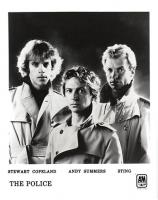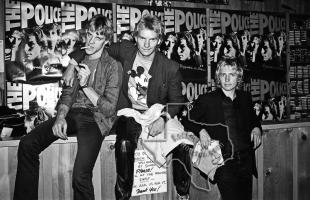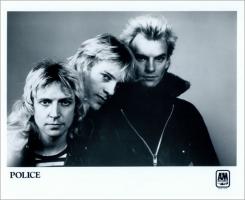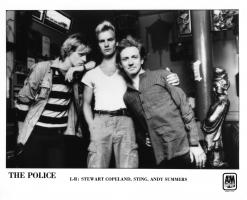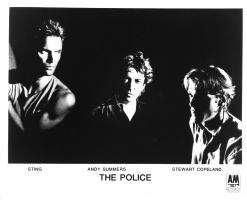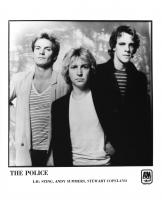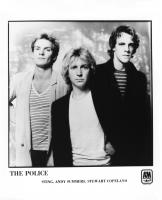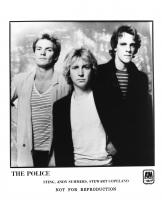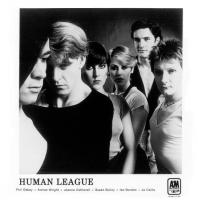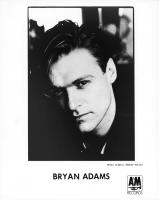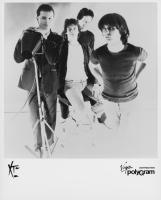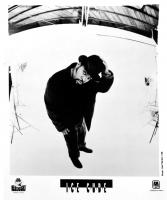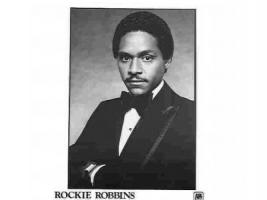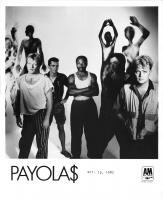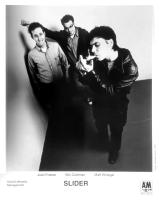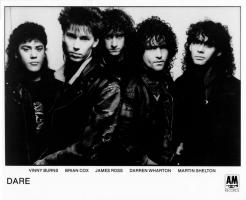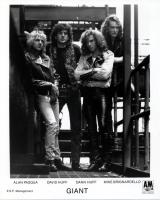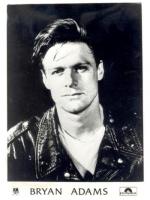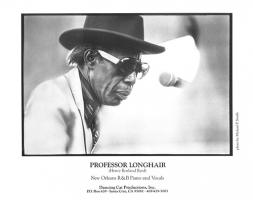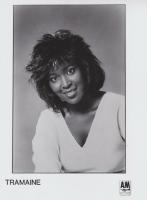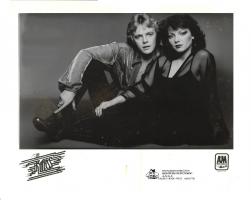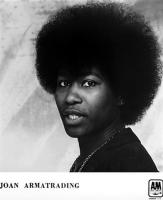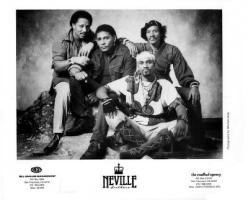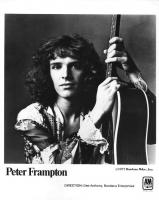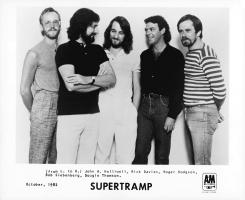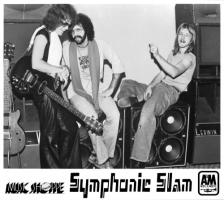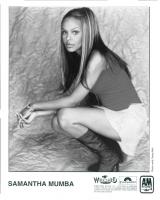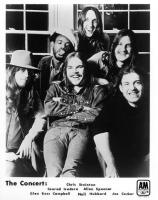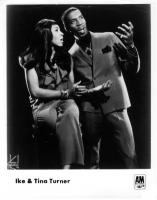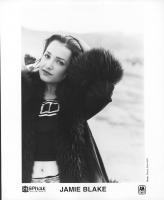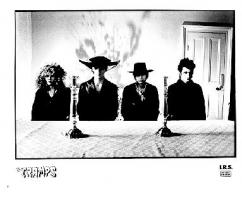Police
"Right from 'Roxanne,' we realized we had something special with the Police. Then we saw them at the Whisky A Go Go, and it sounded like eight guys were onstage. Sting had this energy that made him such an incredible performer, but with the loose sensibility he had as a jazz player – and on top of that, he writes such great, indelible songs."--Herb Alpert
"The Police were so different and exciting, unlike anything else on the radio – which made them perfect for A&M. Seeing their development over a five or six year span was amazing. 'Synchronicity' was when the Police became icons. I remember their manager showed me the lyric sheet for 'Every Breath You Take' – I didn't even need to hear the melody to understand that song was going to be huge. Just for fun, because they were blondes, they did a show for blondes only. There was a tremendous turnout, almost 40,000 people. It was almost Beatlesque."--Jerry Moss
I signed The Police on the strength of some tapes brought into the office by Miles Copeland--one of the tracks was Roxanne.--Mike Noble, A&M Ltd. A&R Director, Music Week March 28, 1981
Sting told Joe Smith, "Being brought up on jazz, I was locked out when I started going around to record companies. I went to every major record company with my songs, and they all said I wasn't commercial enough. That is what really made me feel a rapport with the punk movement. Although the music was a little shallow, the anger and sense of wanting to revolutionize the music industry was something I felt strongly about. So the Police flew that banner for a while. We were energetic, loud and noisy, and as the punk bands fell by the wayside, for various reasons we stayed and survived. We came through the door and we put our own flag up. Then we became the establishment."
"In the beginning with the Police it was all a fantasy. We fantasized having a Number 1 hit, and everything happened with us step by step. I did not imagine we would become as mega as we did, but it did happen step by step. I am not sure we had a formula, but we knew what we wouldn't do and what we would do. We knew we did not want to support anybody. We felt if we had to go out and play in front of four people, it was better than supporting Foreigner and having the audience throw rocks as us. We played places like Poughkeepsie at the Last Chance Saloon for three people, and one of them was a DJ."
"We traveled by station wagon with the gear in the back. We took turns driving. We shared a motel room. Came back after eight weeks on the road with ten dollars in my fist, which I gave to my wife. It was bloody-mindedness, and it was discouraging at the start when people said, 'You shouldn't do this. It is madness.' The record company would say, 'What are you doing this for? No one does this.' To us, that was a good reason to do it. We never asked our record company, A&M, for an advance, so we never had that kind of feudal relationship with them. They never felt as if they owned us, and the partnership continues today."
The original lineup of The Police--Stewart Copeland, Sting and Henry Padovani--began in late 1976. In January 1977 they began rehearsing; cut "Fall Out" in February, played their first concert in March; released "Fall Out" in May, and Andy Summers joined in July making the trio into a quartet until Padovani left in August.
"Andy played a much more demanding form of guitar playing where he worked out musical parts that were very important and very sophisticated and were very evolved, and [when] we would go to improvisations, he would use massive technique to get around the strange laces and provide really oblique harmonies to the weird rhythmic places that Sting and I would go. It took a greater degree of proficiency to do what Andy did than it would have been to play a normal solo which everybody plays."
"My style pretty much evolved with Sting on bass and Andy on guitar. Before that I was very proficient. I could play and I had a lot of technique. I started very young and was trained at a very early age, and I'm classically trained. But it wasn't until I started playing with Andy and Sting that I developed a musical personality."
"We were very deeply inispired by reggae--but we had kind of a different take on it."
--Stewart Copeland, Goldmine, August 8, 2003
OUTLANDOS D'AMOUR 1978
Signed with A&M Records in 1978. The initial signing was in London by A&M's Derek Green. The signing with A&M in the United States, Miles Copeland negotiated with Jerry Moss. The deal they agreed to was only for a royalty if the single "Roxanne" sold well. "Roxanne" was released in April 1978.
The plastic Police whistle is highly collectible because it was made especially for the band's appearance at the Whisky-a-Go-Go.
The Police dyed their hair blonde to appear in a Wrigley's gum television commercial.
The Police produced their Outlandos d'Amour album for $6,000. Miles Copeland is responsible for the album title. Outlandos was released in November 1978. There were three album covers for Outlandos: their logo appeared in green, red and yellow. Some copies had B-side labels without typography
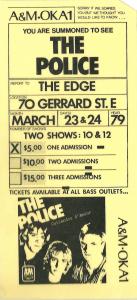
A&M Canada's Ontario Branch created this parking ticket to promote The Police concerts at The Edge in March 1979. Several thousand tickets were distributed at retail, promotion and under windshields. The band played two shows a night for a $5.00 cover charge. The shows were a colossal success.
SINGLES FROM OUTLANDOS D'AMOUR
In the U.S., the "Roxanne" single was printed with two different labels. On one the A&M logo is at 9 o'clock and the other it is at 6 o'clock. When issued within the Memories double-sided hits singles series (AM 8622), there were two labels. One had "The Police" under the title and the other had "The Police" at the bottom of the label. The single 75021 8622 carried a bar code on the label.
The Police badge of "Roxanne" was done in two pressings. The first run of 500 copies had a clear rim. These discs were promotional only. The second run of 5,000 copies had a black rim. Both were serviced in a wallet sleeve however the inside of some were sepia toned and the remainder were black and white.
In the U.S., there was a misprint combining the B-side of "Can't Stand Losing You" "No Time This Time" (2147) with Peter Frampton's "I Can't Stand It No More" (2148)/
"Roxanne" and "Can't Stand Losing You" were re-released in the U.K. in 1979 peaking at #12 and #2 respectively.
"Message In a Bottle" was originally released in October 1979. It was re-issued in May 1980. The reasons for this rare re-issue of a single was that radio was reacting negatively to new wave and British music and top 40radio was switching to pop adult formats, in its initial release the single ran into the holiday period before it could be fully worked, and the album and single ere selling well around the world. To reintroduce the single, A&M placed ads in trade publications and radio tip sheets.
REGGATTA DE BLANC 1979
For Regatta de Blanc, again named by Miles Copeland, A&M decided on a 10-inch vinyl double album format. The idea was a basically black vinyl record with pieces of colored vinyl embedded into it. The shape of each colored piece was to be random so all the albums would be unique. The idea never passed the prototype stage so only a few of these pressings exist. You can see the prototype on the Reggatta de Blanc discography page,
The first printing of Reggatta de Blanc in the U.S. did not have a bar code. Successive printings show a bar code on the back cover. The album was issued with a promotional poster. The 10-inch double vinyl album with stock number SP 3713 was the first pressing. It was reissued with a new stock number of SP 6018. The first CD was assigned stock number SP 3312 and its reissue SP 4792.
Reggatta benefitted from the U.S. concert tour because the band had more playing time together, particularly improvising with one another. "Message In a Bottle" became the first #1 single. In December 1979 "Walking On the Moon" was #1 in Britain.
A&M Records Internal Promotion for Reggatta de Blanc
The May 18, 1979 concert by The Police in Los Angeles was the first live broadcast simultaneously aired by toradio stations in L.A.
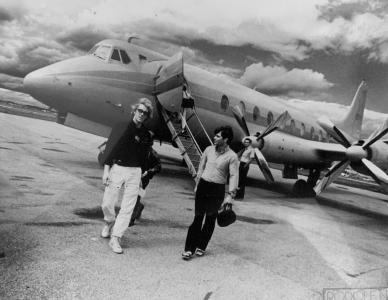
The Police conquered Canada with heavy retail presence, massive support from radio and media and touring, touring, promotion, touring. Their first show in-country saw some 17 people in the crowd in what is now a legend at Toronto's Horseshoe Tavern. They went on to host huge consecutive outdoor festivals (The Police Picnics) and SRO stadium shows. Here are Stewart Copeland and Jim Monaco (A&M Canada Publicity) departing the tour transportation for a Montreal show. Photo courtesy Rodolf Noel.
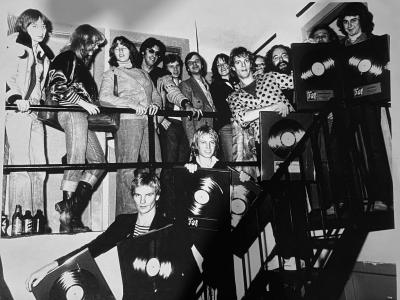
A&M Canada staff with The Police as they received gold album awards for Reggatta de Blanc.
Debbie Spear, Shirley Doucet (Production), Hank Koch (Ontario sales), Pat Ryan (Ontario promotion), Ray Roenberg (Ontario branch manager), Kim Sharpe (publicity), Stewart Copeland, Lorna Richards (publicity), JP Guilbert (national promotion), unknown, Kim Turner (manger), Sting, Andy Summers.
ZENYATTA MONDATTA 1980
Zenyatta Mondatta by the Police was recorded over three weeks. Copeland told Goldmine, "OK, now it's series. You guys are now having #1 hits. You are not major artists, and this is the third album that seals it for you. This closes the deal about whether you're just a flash in the pan or mega. So there was a lot of pressure." The album was the biggest selling album in the U.K. in 1980. "Don't Stand So Close to Me" was #1 in the U.K. and #10 in the U.S.
In 1980, reader and critics polls recognized the Police 45 times and 21 of them put the Police in the #1 and/or #2 position.
"De Do Do Do, De Da Da Da" by the Police sold 700,000 copies in the US and the Japanese/English version sold another 20,000 units.
The Police single "Don't Stand So Close to Me" sold 500,000 units in the US.
The album Zenyatta Mondatta by the Police sold 900,000 copies in less than 90 days and spent over one year on the US chart.
To book concerts in Hong Kong in 1980, Ian Copeland sent this telex to the promoter: "We will be in Hong Kong February 21 through 26 and we must play somewhere/anywhere--concert, club, NCO club, high school, college, play for the troops or whatever." The band was booked for three nights at Taipei's China Sports & Culture Center but the Taiwanese government decided it did not want "that sort of music." Taiwan also prevented the release of the album Propaganda by various new wave artists on A&M Records because the cover art showed Chinese Chairman Mao playing the guitar. All of the dates set for Japan, Australia and New Zealand were sold out.
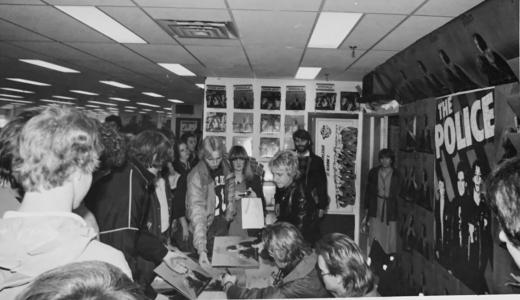
The Police in Canada making an in-store appearance supporting the Zenyatta Mondatta album
GHOST IN THE MACHINE 1981
Ghost In the Machine Marketing Plan
In October 1981 Ghost in the Machine was simultaneously released as an A&M Records album and as a Nautilus half-speed Super disc. This was the first simultaneous release of a new album on Nautilus. A&M had an electro picture disc created by Fitzgerald-Hartley. When played on a turntable, "333" lit up. Only ten copies were made.
"Every Little Thing She Does Is Magic" peaked at #1 in Britain and #3 in the United States.
The Police were the first rock band to perform at the Vina del Mar Song Festival in Chile on February 19 and 20, 1982.
1982 Canada tour press release
SYNCHRONICITY 1983
The Police single, "Every Breath You Take," had the longest run for A&M at #1 on the Billboard Pop Singles chart. It held the top spot for eight weeks. It was also #1 in Britain and oother countries around the world.
The Police album, Synchronicity, held the #1 position on the Billboard Pop Chart longer than any other A&M album. It was #1 for 17 weeks.
Synchronicity won the international album of the year at the 1984 Juno Awards. By February 1984 the album was an eight times platinum album in Canada (sales over 850,000 copies).
How many official album covers were created for Synchronicity? Only four. The second rarest is the gold-silver-bronze bars that was a first pressing of the album in 1983. It was a limited edition printing and copies of it were mixed in with the red-blue-yellow bar copies. The rarest uses the gold-silver-bronze bars with no photos and only about ten copies were printed.
The first CD single from A&M Records was 'Don't Stand So Close to Me '86' by The Police.

The Police with Alan Oken celebrating Synchronicity achieving platinum status at A&M's convention in San Francisco.
In 1986, The Police were going to re-record their hits with technology not available when they recorded their five albums. They recorded "Don't Stand So Close to Me '86" and "De Do Do Do, De Da Da Da." Only "Don't Stand So Close to Me '86" was released.
The Police disbanded in 1985 with all five albums being certified gold and/or platinum and all of their singles in the Top 10.
AFTER THE A&M RECORDS ACTIVE ARTIST YEARS
In 1986 The Police reunited for three concerts to support Amnesty International. Their show on June 21 was widely regarded as the last concert they would play together.
They reunited for a performance at the Rock and Roll Hall of Fame in 1992, and then a concert tour in 2007.
The Police song "Every Breath You Take" is part of the soundtrack for "The Runaway Bride" film.
"Murder By Numbers" by The Police appeared in the movie "Copycat."
A&M Records first rap music hit was the Sean "Puffy" Combs remix of The Police song "Roxanne '97."
Andy Summers was voted 85 in Rolling Stone's 100 Guitarists of All Time.
On Rolling Stone's 500 Greatest Albums of All Time, The Police had four of their five albums among them. Synchronicity was #455, Outlandos d'Amour #434, Reggatta de Blanc #369 and Ghost in the Machine #322.
OFFICIAL PROMOTION BY A&M RECORDS
Police: Reggatta de Blanc
Reggatta de Blanc Sting interview
Every Breath You Take: the Singles 1986 A&R Presentation
Synchronicity Concert press release
Police Box British press release
Police Box U.S. press release
Police Live! U.S. press release
Catalog Reissue press release
Every Move You Make: the Studio Recordings 2018 Press Release
Every Breath You Take Video 1 billion streams
Police Official Biography 1978
Police Official Biography January 1979
Police Official Biography October 1979
Police Official Biography Europe 1979
Police Official Biography October 1980
Police Official Biography September 1981
Police Official Biography Germany September 1981
Police Official Biography Germany December 1981
Police Official Biography June 1995
Police Official Biography 2003
Police March 1979 Tour Press Release
Police February 1980 Tour Press Release
Police Canada Tour July 1982 Press Release
- Determination Puts Police Into Orient. Adam White. Billboard, March 8, 1980.
- A&M Re-Releases Police Single Due to Growing Intl. Response. Samuel Graham. Record World, May 17, 1980.
- Nautilus LP for Police. Billboard, September 19, 1981.
- Police Interrupt U.S. Tour for South American Date. Roman Kozak. Billboard, February 13, 1982.
- Off the Record: An Oral History of Popular Music. Joe Smith. New York: Warner Books. 1988.
- A&M Records' Greatest Hits. Matt Diehl. Rolling Stone, September 7, 2012.
Official autobiographies:
Stewart Copeland: Strange Things Happen: A Life with The Police, Polo, and Pygmies
Andy Summers: One Train Later: A Memoir
Sting: Broken Music: A Memoir
| Name | Member Years | Instruments |
|---|---|---|
| Andy Summers | 1978-1997 | guitar |
| Stewart Copeland | 1978-1997 | drums, vocals |
| Sting | 1978-1997 | vocals, bass |
| Name | Birth | Death |
|---|---|---|
| Andy Summers | 1942-12-31 | |
| Stewart Copeland | 1952-07-16 | |
| Sting | 1951-10-02 |
| Name | See associated acts |
|---|---|
| Andy Summers | Andy Summers & Robert Fripp, Andy Summers |
| Stewart Copeland | Klark Kent, Stewart Copeland/Stan Ridgway, Stewart Copeland |
| Sting | Bryan Adams & Rod Stewart & Sting, Sting & Eric Clapton, Sting |

